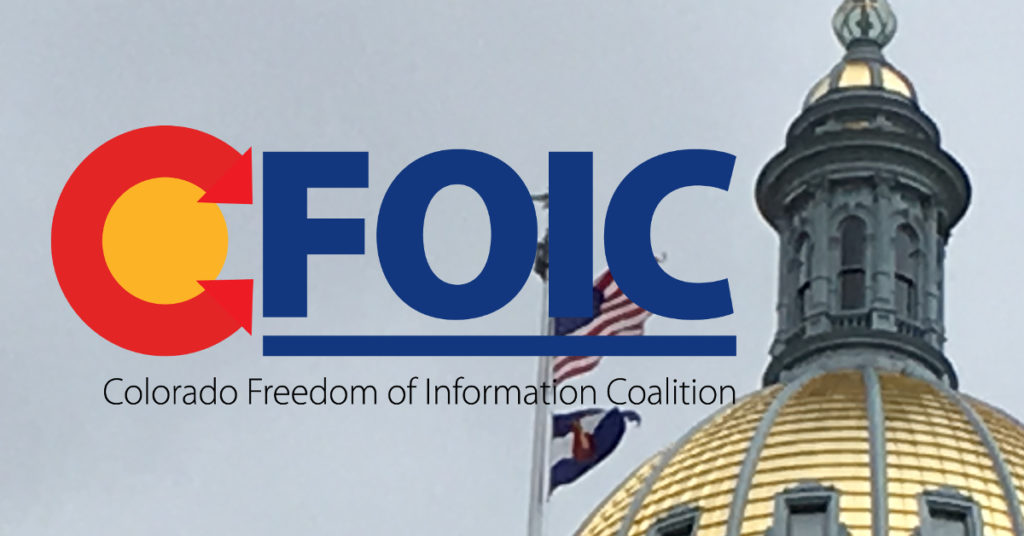The Colorado Freedom of Information Coalition joined 131 other transparency-minded organizations Friday in urging state, local and tribal governments across the United States “to recommit to, and not retrench from, their duty to include the public in the policy-making process, including policies relating to COVID-19 as well as the routine ongoing functions of governance.”
CFOIC signed a statement drafted by the National Freedom of Information Coalition and the Brechner Center for Freedom of Information that asks government bodies to defer making noncritical policy decisions “until full and meaningful public involvement can be guaranteed.”
When government bodies do meet, they should take every available measure to 1) notify the public of those meetings and explain how to participate remotely; 2) use widely available technologies to maximize real-time public engagement; and 3) preserve a viewable record of proceedings that is promptly made accessible online.

“We understand that government agencies will struggle with staffing and time constraints during this period of exigency, as employees transition into working from home, attend to personal and family health needs, and become focused on crisis-response duties,” the statement reads. “Some agencies undoubtedly will have difficulty meeting their legal obligations to process requests for public records promptly and thoroughly.
“This predictable difficulty counsels strongly in favor of affirmatively disclosing as much as is legally permissible without waiting to receive a request for records. Members of the press and public often resort to freedom-of-information requests when decisions are made secretively. It should not be necessary to reconstruct critical decisions about public health and safety by piecing together email trails. The fact that a government decision involves public health and safety is a reason for more, not less, transparency.”
The statement is signed by national and state organizations from across the country, including American Booksellers Association, Center for Public Integrity, Americans for Prosperity Foundation, Citizens for Responsibility and Ethics in Washington, Council of State Archivists, Reporters Committee for Freedom of the Press, Electronic Frontier Foundation and PEN America.
The organizations also urge government employees to faithfully observe records-retention protocols so that messages about core governmental functions are retrievable and reviewable. “All official-business communications – regardless of where it occurs, and whose devices and accounts are used – should take place over channels that allow for messages to be easily archived, produced and read.”
“The legitimacy of government decision-making requires a renewed commitment to transparency,” the statement concludes. “Open government is not ‘bureaucratic red tape.’ We encourage the custodians of information at all levels of government to take this opportunity to leverage technology to make governance more inclusive and more credible, not to suspend compliance with core accountability imperatives in the name of expediency.”
CFOIC earlier this week published an article about how public bodies should conduct virtual meetings in compliance with the Colorado Open Meetings Law.
Also, the Reporters Committee for Freedom of the Press has suggested best practices for governments and journalists to ensure timely access to government information. From the guide:
- Government agencies at all levels should proactively release records and information about COVID-19 and the government’s response.
- Government agencies should take steps to encourage the submission of electronic records requests, including by email.
- Government employees and contractors working remotely should be given the necessary tools and resources to continue processing records requests.
- If public bodies meet online or by telephone, they should ensure the public is provided advance notice and widely distribute instructions for how the public can participate.
Follow the Colorado Freedom of Information Coalition on Twitter @CoFOIC. Like CFOIC’s Facebook page. Do you appreciate the information and resources provided by CFOIC? Please consider making a tax-deductible donation.




